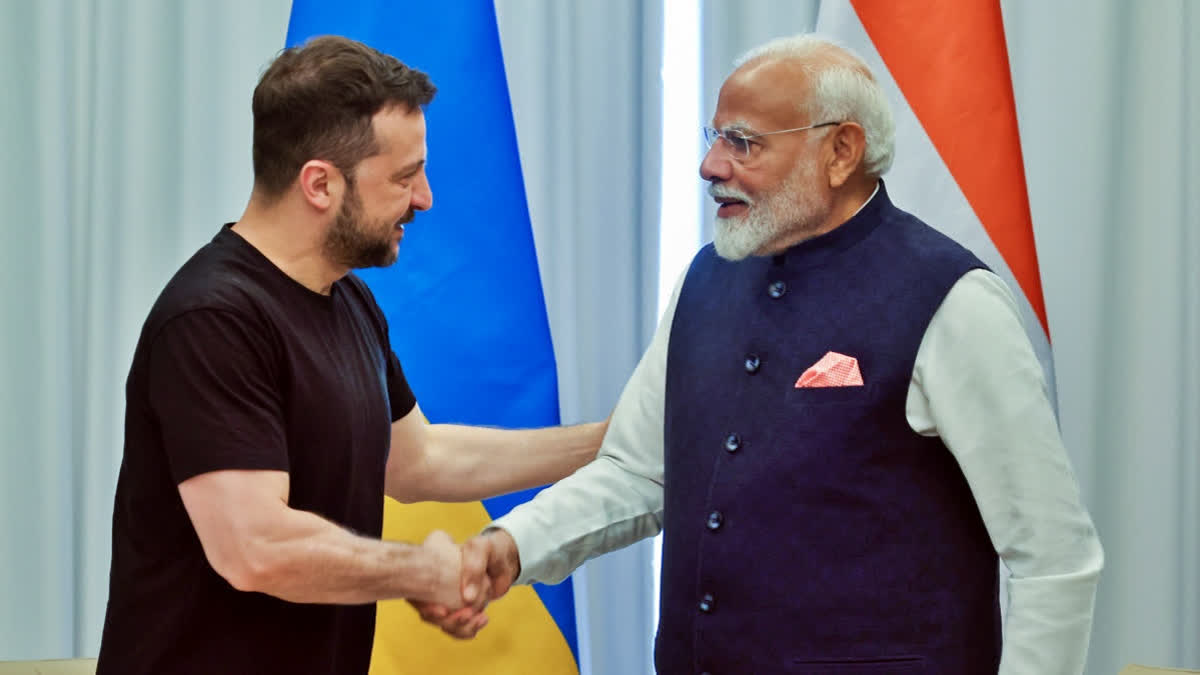News reports mention that PM Modi is likely to visit Ukraineon August 23, details of which are still being worked out. This will be Modi’s first visit to the country since the Russia-Ukraine war commenced.
The PM had earlier visited Moscow for two days in July. Before his Moscow visit, PM Modi had met Ukrainian President, Vladimir Zelensky, on the sidelines of the G7 summit in Italy, where an invitation to visit Kyiv was given.
What was damaging for the US was that PM Modi’s Moscow visit coincided with the NATO summit in Washington, dominating Russian media, and sidelining NATO’s warning to Moscow. A US media report mentioned that ‘US Deputy Secretary of State Kurt Campbell spoke with Foreign Secretary Vinay Kwatra in early July hoping that the Modi-Putin encounter might be rescheduled to avoid coinciding with the NATO Summit.’
This was debunked by Vinay Kwatra, who stated, “The bilateral visit this time is just a scheduling priority that we have undertaken. And that’s what it is.”
The US ambassador to India, Eric Garcetti, added to Washington’s displeasure on the visit by mentioning that India should not take US friendship ‘for granted.’ The US National Security Advisor, Jake Sullivan, added that banking ‘on Russia as a long-term, reliable partner, is not a good bet.’ The US ignored India’s strategic independence.
Zelensky, the Ukrainian president was exceptionally critical as the visit coincided with a missile strike on a children’s hospital in Kyiv, which Moscow denied. Zelensky stated, ‘It is disheartening to see the leader of the world's largest democracy embrace the world's most notorious criminal in Moscow.’ India subsequently raised the comment with Kyiv at the diplomatic level.
There is much more behind the forthcoming visit than possibly meets the eye. Primarily, PM Modi would have discussed Russian conditions to terminate the war with President Putin during his discussions in Moscow. These may not be exactly what Russia has been announcing to the world. The globe is aware of Indo-Russia ties and the influence New Delhi has over Moscow.
India never criticized Russia for the invasion while insisting on talks as the way forward. Ukraine may have expanded its ability to target deep within Russia but this would have limited impact on the conflict. Simultaneously, global events indicate a change in current levels of support for Ukraine thereby reducing its ability to continue pursuing the conflict. Within Ukraine, war fatigue also appears to be setting in.
A German draft budget mentions that the country is contemplating nearly halving its military funding to Ukraine from Euro 6.7 billion to 4 billion. Germany was the largest financial backer of Ukraine in Europe. Further, leaders gaining power in European nations are hesitant to back current funding levels.
The US elections might bring Donald Trump into the White House, who has promised to end the war. In all probability he would cut funding, compelling Ukraine into talks. The conditions imposed by Trump would not be appealing to Zelensky.
The three Ukrainian peace summits, Copenhagen, Riyadh and the latest in Switzerland have failed to make any headway nor project concrete proposals for dialogue. The communique issued after the last summit was only a display of solidarity with Ukraine, inked by 81 countries, none of which were BRICS nations, which have some influence on Russia.
